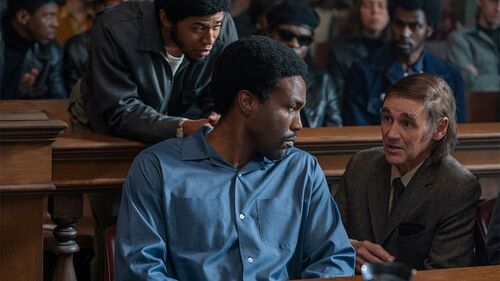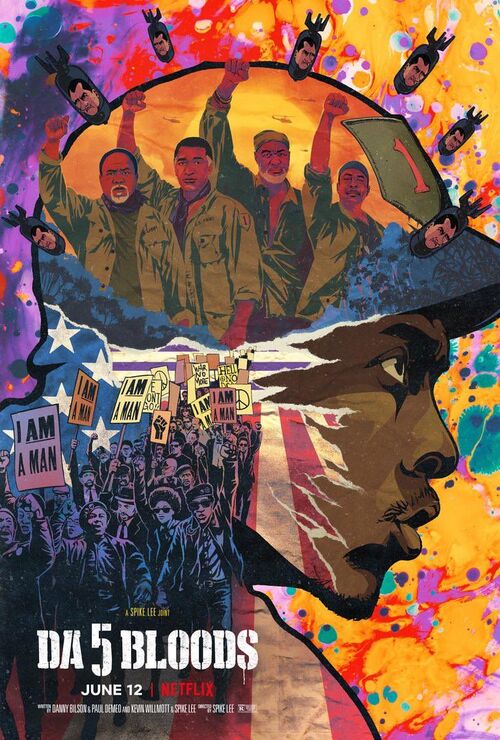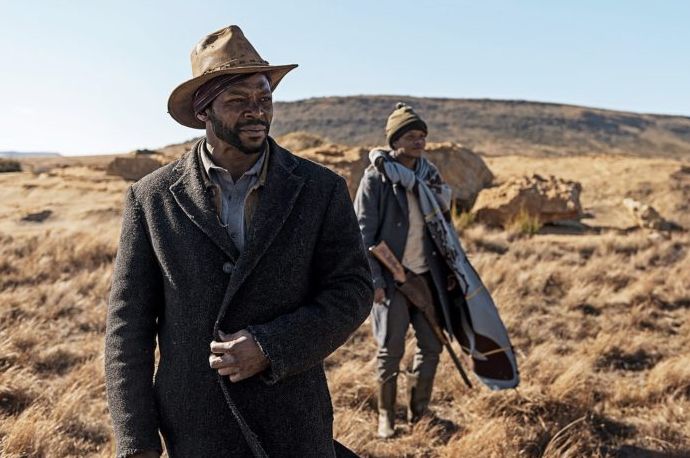
'Five Fingers for Marseilles' (2017) review
 The window to one’s soul is through the eyes, we are told time and time again. But sometimes the hands of a man can paint an accurate portrait of his essence as South African director Michael Matthews shows in his 2017 debut feature ‘Five Fingers for Marseilles’. He does so in a manner that recalled Nicolas Winding Refn’s gripping angling of his protagonist in ‘Only God Forgives’.
The window to one’s soul is through the eyes, we are told time and time again. But sometimes the hands of a man can paint an accurate portrait of his essence as South African director Michael Matthews shows in his 2017 debut feature ‘Five Fingers for Marseilles’. He does so in a manner that recalled Nicolas Winding Refn’s gripping angling of his protagonist in ‘Only God Forgives’.
Front and centre of ‘Five Fingers’ we have Tau, who lost a piece of his soul as a kid when he decided to soak his hands in blood to protect his humble town and a girl he was fond off. What began with three white police officers hassling a town escalates into heated pockets of resistance, a car crash and Tau, blinded by grief and anger, gunning down the officers. We never look at Tau's hands the same again.
It’s a stunning punctuation to a 17-minute epilogue that highlights the best Matthews has to offer. And yes, I have buried the lede here. 'Five Fingers' garnered attention for notably weaving the glorious sensibilities of spaghetti westerns around a narrative concerned with the secondary infection of colonialism, loss of innocence and the breakdown of society.
The epilogue showcases the sweepings plains and overpowering landscapes of rural South Africa that envelope the isolated townships making them feel like an aberration of nature. Then there’s the introduction to the titular five fingers, four of whom are in a standoff with catapults holstered to their hips and pebbles twirling in palms. It’s the first of Matthews’ nods to Sergio Leone.
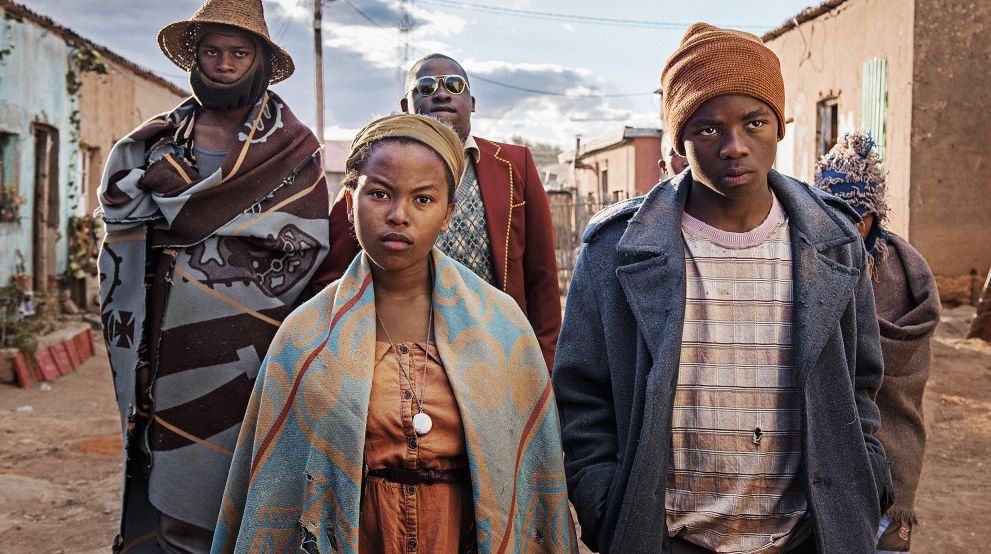
We are given brief character descriptions for each kid – Zulu their leader is the most measured, Tau is a hothead and tagged as the ruthless lion, Unathi is the devout Christian and griot figure, the plump Bongani aka Pockets because he as deep pockets and then there’s Luyanda – bullied, called Cockroach and described as broken. On the periphery of the five is, Lerato, the lone girl who is described as the heart and soul of this juvenile posse.
The setting of this post-colonial parable is closer to reality than you think. Our director and his writer (Sean Drummond) talk about traveling South Africa and coming across a town called Marseilles near the Lesotho border, where a few other towns with European monikers exist. Of course, the shadow of European occupation spreads beyond mere Eurocentric town names. Matthews understands this.
Beats like the indelible role of youth power in South African resistance, the significance of land and why it is worth dying for resonate. The relegation of the township is all too recognizable, so too the exploitation of a people violently divorced of a society built on their blood and sweat. “They called it their land and for us who had been there before, they put us on a hill out of sight” a glum narrator laments.
I could go on and on about the epilogue which is very accomplished – as close to perfect storytelling as can be. It is a shame that ‘Five Fingers’ loses some of the massive credit garnered as the story lumbers towards its finale. The story would have us believe that Tau’s blood lust in killing the police officers changed the fortunes of the town for the worst.
Tau ran off after the shooting and the film fast forwards a couple of decades where he has now garnered the reputation in the criminal world as the Lion of Marseilles except that we don’t really see him as a criminal. We see a train heist gone wrong and him being released from jail. But he doesn’t seem to be a hothead anymore. He is now more in line with the stoic heroes, with latent primal sensibilities we have come across in westerns in the past.
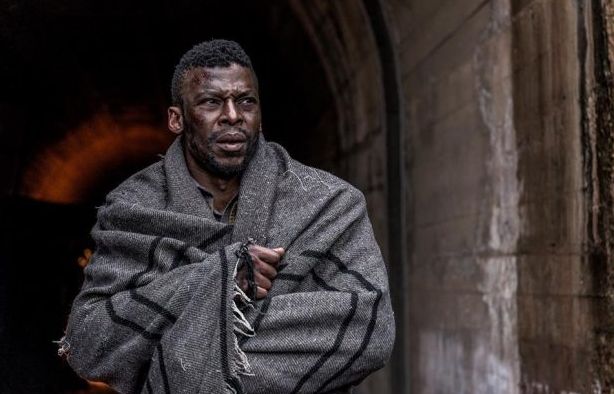
It’s definitely a character leap that isn’t adequately explained. Two decades feels like too big a gap for audiences to just accept. Tau (Vuyo Dabula) eventually returns home where the other members remain tethered to the moment that changed everything. Luyanda, once broken dons a mask of violence as a hardened police officer. Pockets (Kenneth Nkosi) is now the mayor of the town, wading in murky waters of corruption. Unathi (Aubrey Poolo) actually became a pastor, albeit one weighed down by the sins of another man (?).
Lerato (Zethu Dlomo) seems to have a pile of complex moments dumped on her because she is the heart of the group. She is put through the grinder of tragedy rather gratuitously and is given “her moment” in the finale that simultaneously demonstrates a lack of understanding of what violence means to the characters, stripping her of the noble tag as the group’s moral compass.
In a small defense of Matthews, maybe he is asking us to tap into our own knowledge of the African fabric to fill in the gaps, and it works in parts; for mainly Pockets and Luyanda. The privileged idealist kid who tastes and is corrupted by power is a familiar tale. So too the man who got tired of being crushed under jackboots, so he aspired to do the crushing himself, as is the case for the man once called Cockroach.
There is a villain here I must add. Sepoko, the almost sagely, somewhat gender fluid, gang leader that chills and charms on the back of a meaty performance by Hamilton Dlamini. Known as the Ghost, he rides in with the black hat and a surreal tale about his birth, simplifying proceedings and giving us the expected rod off ill intent our Five Fingers (and a few more friends) will rally to thwart.
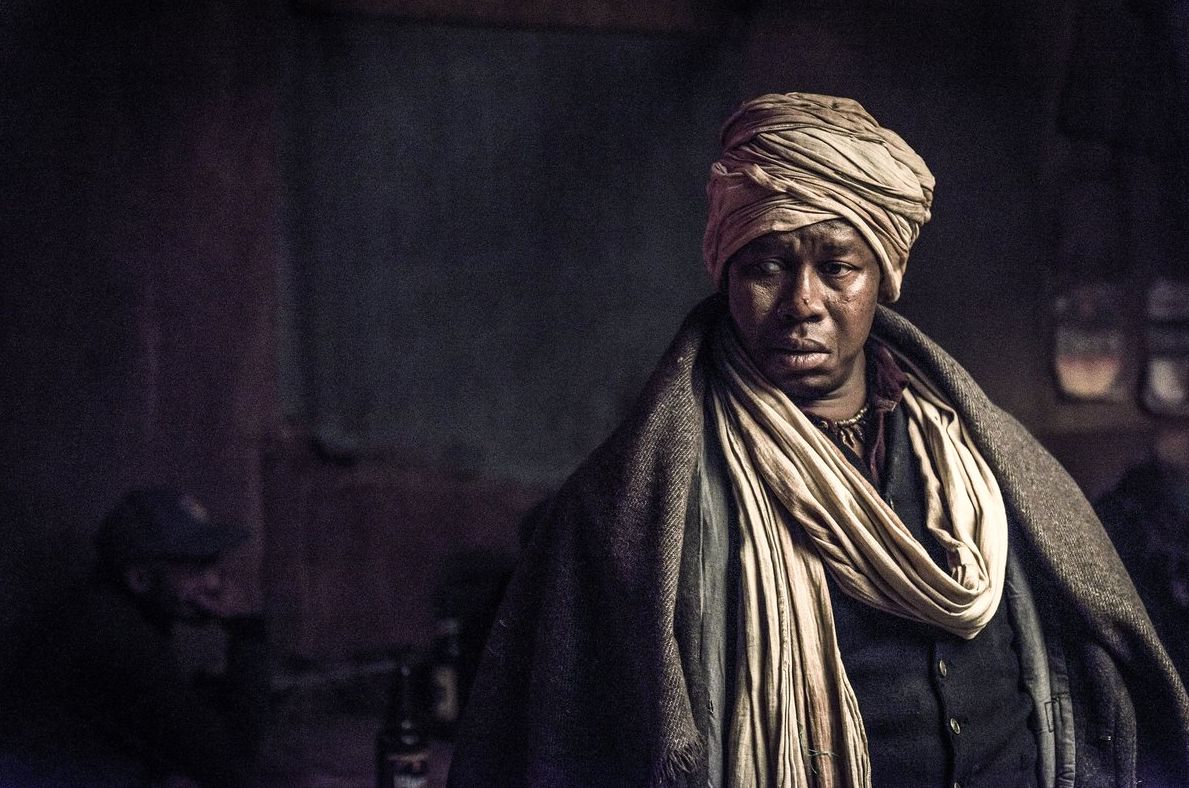
‘Five Fingers’ does stutter on the character front but it makes up for those failings with an inspired sense of mood. Matthews is very interested in the idea of decay, sometimes in the abstract with the inequality in a town that seems to exist outside of time or the depths the Five Fingers have sunk to. The decay is more telling in the physical with shots of a rotting cow’s carcass, the small moment spent with a tap that sputters air and mud and, of course, the signboard that welcomes us to Marseilles, which has withered away, losing color and vibrancy of the two decades earlier.
As much depth and commentary on post-apartheid South Africa ‘Five Fingers’ provides, the film is at its most enjoyable when it is love letter to spaghetti westerns. We have the incredible score is subtly inspired by Ennio Morricone’s iconic work for Sergio Leone. The Basotho Blanket donned by a character is a beautiful nod Clint Eastwood in poncho get up. Then there’s the catharsis laden standoff the coda that is more spiritual than anything.
The editing and overall directing choices point to filmmakers who cherish westerns, making it hard to dislike this film despite clear flaws; a clear one being Matthew’s desire for a spectacle but the inability to deliver on one. The eruptions of violence work well on smaller contained scales but the one big shoot out this film offers is as underwhelming as it is incoherent.
Hiccups notwithstanding, 'Five Fingers' is a stimulating genre exercise and a great mood piece that never matches its early peak. What should not be sniffed at is how it effectively articulates themes like resistance and deterioration that hearken through the rich history of African cinema to its genesis in ‘Black Girl’. Matthews doesn’t quite hit the mark of excellence but I would like to see him take another crack at it.
-
Photos: Graham Bartholomew
